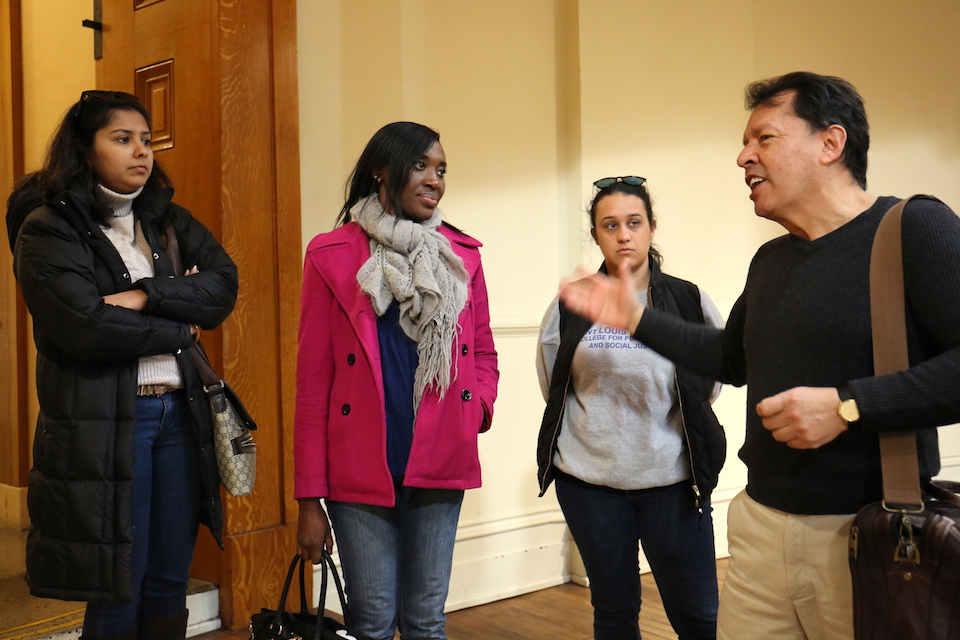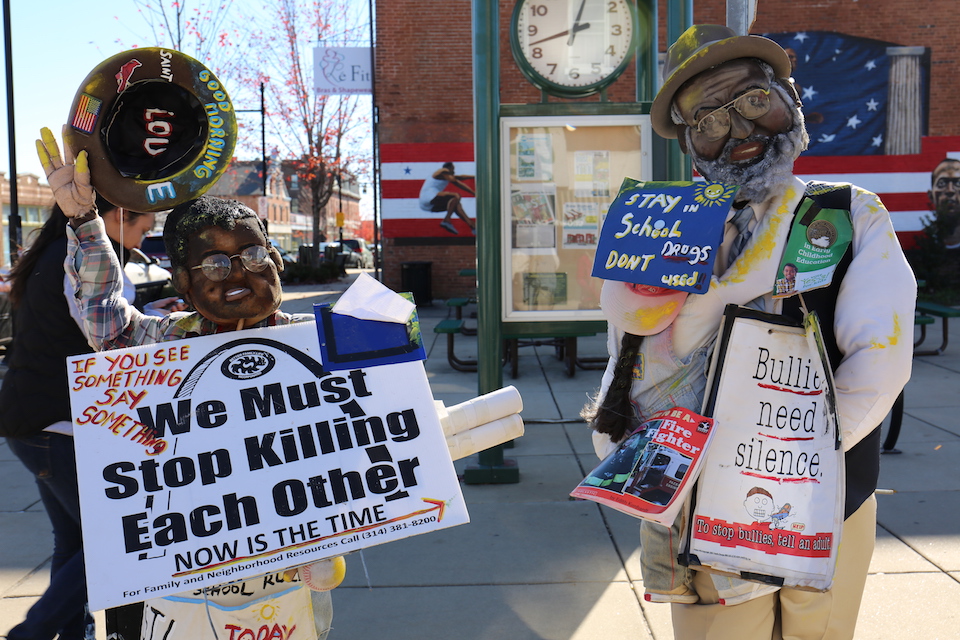Exploring St. Louis Through A Global Health Lens
“How did this area, this region, get this way? What policies were in place to facilitate the neglect of these neighborhoods?” Fernando Serrano, Ph.D., assistant professor of environmental and occupational health, asks students during his third annual Environmental Justice Tour of St. Louis.
“In global health, students learn to ask questions: how was this problem created and how can we fix it?” Every year, Serrano takes his Diplomacy and Policy class, part of the Master of Public Health in Global Health curriculum, on a tour of North St. Louis, East St. Louis, Fremont City and the Old Courthouse downtown.
“Epidemiology and biostatistics provide evidence of the inequalities in health status. We know that the quality of life in certain zip codes in St. Louis is similar to that of struggling areas in developing countries. Our focus is on how to use this evidence to inform policies and decisions that can change this situation.”
In North St. Louis–just a short drive from the iconic Arch–entire neighborhoods are abandoned; houses crumble on deserted streets, filled with potholes and garbage. The residents who continue to live there are left with not only poor housing options, but no resources: no grocery stores, no health clinics, no schools. The tour was equally eye-opening for long-time residents of St. Louis as well as the international students.
An Ecuadorian native himself, Serrano came to the United States 20 years ago. In St. Louis, he became intimately familiar with these parts of the inner city while researching his dissertation on lead levels in children. He would knock on every door in the poorest parts of the city to convince parents to let him take blood samples of their children and inspect their homes for lead paint.
The challenges of providing a decent and safe place to live is as relevant in these communities as it is in developing countries, Serrano observes. “There has to be the political will to turn things around, to change the dynamics of an area to improve health.”
“The environmental justice tour offers the students the opportunity to leave the class room and the books and see how people live in our own region, and to reflect on how, as global health professionals, they can help to improve health and wellbeing, especially of the most vulnerable.”
###
Published: February 1, 2017
CPHSJ Communications
About the College for Public Health and Social Justice
The Saint Louis University College for Public Health and Social Justice is the only academic unit of its kind, studying social, environmental and physical influences that together determine the health and well-being of people and communities. It also is the only accredited school or college of public health among nearly 250 Catholic institutions of higher education in the United States.
Guided by a mission of social justice and focus on finding innovative and collaborative solutions for complex health problems, the College offers nationally recognized programs in public health, social work, health administration, applied behavior analysis, and criminology and criminal justice.

